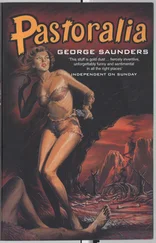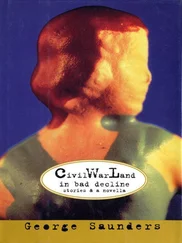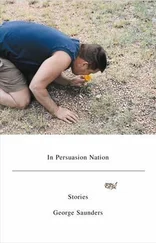Keckley, op. cit.
He was his father’s favorite. They were intimates — often seen hand in hand.
Keckley, op. cit., account of Nathaniel Parker Willis.
He was his father over again both in magnetic personality and in all his gifts and tastes.
In “Lincoln’s Sons,” by Ruth Painter Randall.
He was the child in whom Lincoln had invested his fondest hopes; a small mirror of himself, as it were, to whom he could speak frankly, openly, and confidingly.
In “Reckoning: An Insider’s Memories of Difficult Times,” by Tyron Philian.
Will was the true picture of Mr. Lincoln, in every way, even to carrying his head slightly inclined toward his left shoulder.
Burlingame, op. cit., account of a Springfield neighbor.
One feels such love for the little ones, such anticipation that all that is lovely in life will be known by them, such fondness for that set of attributes manifested uniquely in each: mannerisms of bravado, of vulnerability, habits of speech and mispronouncement and so forth; the smell of the hair and head, the feel of the tiny hand in yours — and then the little one is gone! Taken! One is thunderstruck that such a brutal violation has occurred in what had previously seemed a benevolent world. From nothingness, there arose great love; now, its source nullified, that love, searching and sick, converts to the most abysmal suffering imaginable.
In “Essay Upon the Loss of a Child,” by Mrs. Rose Milland.
“This is the hardest trial of my life,” he confessed to the nurse, and in a spirit of rebellion this man, overweighted with care and sorrows, cried out: “Why is it? Why is it?”
In “Abraham Lincoln: The Boy and the Man,” by James Morgan.
Great sobs choked his utterance. He buried his head in his hands, and his tall frame was convulsed with emotion. I stood at the foot of the bed, my eyes full of tears, looking at the man in silent, awe-stricken wonder. His grief unnerved him, and made him a weak, passive child. I did not dream that his rugged nature could be so moved. I shall never forget those solemn moments — genius and greatness weeping over love’s lost idol.
Keckley, op. cit.
XVIII.
Willie Lincoln was the most lovable boy I ever knew, bright, sensible, sweet-tempered and gentle-mannered.
In “Tad Lincoln’s Father,” by Julia Taft Bayne.
He was the sort of child people imagine their children will be, before they have children.
Randall, op. cit.
His self-possession— aplomb, as the French call it — was extraordinary.
Willis, op. cit.
His mind was active, inquisitive, and conscientious; his disposition was amiable and affectionate; his impulses were kind and generous; and his words and manners were gentle and attractive.
In “Funeral Oration for Willie Lincoln,” by Phineas D. Gurley, in “Illinois State Journal.”
He never failed to seek me out in the crowd, shake hands, and make some pleasant remark; and this in a boy of ten years of age, was, to say the least, endearing to a stranger.
Willis, op. cit.
Willie had a gray and very baggy suit of clothes, and his style was altogether different from that of the curled darlings of the fashionable mothers.
In “The Truth About Mrs. Lincoln,” by Laura Searing (writing as Howard Glyndon).
I was one day passing the White House, when he was outside with a play-fellow on the sidewalk. Mr. Seward drove in, with Prince Napoleon and two of his suite in the carriage; and, in a mock-heroic way — terms of intimacy evidently existing between the boy and the Secretary — the official gentleman took off his hat, and the Napoleon did the same, all making the young Prince President a ceremonial salute. Not a bit staggered with the homage, Willie drew himself up to his full height, took off his little cap with graceful self-possession, and bowed down formally to the ground, like a little ambassador.
Willis, op. cit.
There was a glow of intelligence and feeling on his face which made him particularly interesting and caused strangers to speak of him as a fine little fellow.
Searing, op. cit.
It is easy to see how a child, thus endowed, would, in the course of eleven years, entwine himself round the hearts of those who knew him best.
Gurley, op. cit.
A sunny child, dear & direct, abundantly open to the charms of the world.
In “They Knew the Lincoln Boys,” by Carol Dreiser, account of Simon Weber.
A sweet little muffin of a fellow, round and pale, a long shock of bangs often falling before his eyes, who would, when he found himself moved or shy, involuntarily perform a rapid opening and closing of the eyes: blink, blink, blink.
In “The President’s Little Men,” by Opal Stragner.
When confronted with some little unfairness, his face would darken with concern, and his eyes well up with tears, as if, in that unfortunate particular, he had intuited the injustice of the larger enterprise. Once a playmate brought along a dead robin he had just killed with a stone, held tong-like between two sticks. Willie spoke brusquely to the boy, seized the bird away, took it off to bury it, was low and quiet for the rest of the day.
In “Lincoln’s Lost Angel,” by Simon Iverness.
His leading trait seemed to be a fearless and kindly frankness, willing that everything should be as different as it pleased, but resting unmoved in his own conscious single-heartedness. I found I was studying him irresistibly, as one of those sweet problems of childhood that the world is blessed with in rare places.
Willis, op. cit.
Privately, after the service, Dr. Gurley told people that shortly before death Willie had asked him to take the six dollars that were his savings out of the bank on his bureau and give them to the missionary society.
Kunhardt and Kunhardt, op. cit.
With all the splendor that was around this little fellow in his new home, he was so bravely and beautifully himself —and that only. A wild flower transplanted from the prairie to the hot-house, he retained his prairie habits, unalterably pure and simple, till he died.
Willis, op. cit.
Many months later, going through some old clothing for Mrs. Lincoln, I found, in a coat-pocket, a tiny wadded-up mitten. Many memories came back to me and I burst into tears. I will remember that little boy forever, and his sweet ways.
Hilyard, op. cit., account of Sophie Lenox, maid.
He was not perfect; he was, remember, a little boy. Could be wild, naughty, overwrought. He was a boy. However — it must be said — he was quite a good boy.
Hilyard, op. cit., account of D. Strumphort, butler.
XIX.
About noon, The President, Mrs. Lincoln, & Robert came down and visited the lost and loved one for the last time, together. They desired that there should be no spectator of their last sad moments in that house with their dead child & brother. They remained nearly ½ an hour. While they were thus engaged there came one of the heaviest storms of rain & wind that has visited this city for years, and the terrible storm without seemed almost in unison with the storm of grief within.
In “Witness to the Young Republic: A Yankee’s Journal, 1828–1870,” by Benjamin Brown French, edited by D. B. Cole and J. J. McDonough.
During the half hour the family was closeted with the dead boy, lightning cleaved the dark sky outside, thunder as terrible as artillery fire made the crockery shudder, and violent winds charged in from the northwest.
Epstein, op. cit.
From throughout the spacious halls that evening great sounds of grief could be heard, not all emanating from the direction of the room where Mrs. Lincoln lay insensate; the President’s deeper groans could also be heard.
Читать дальше












